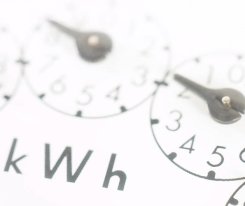9 May 2007
More Evidence For Brain Regeneration From Electro-Shock Treatment
by Kate Melville
 Columbia University researchers, writing in the latest issue of The Journal of Neuroscience, say that experiments with monkeys have confirmed earlier findings that electroconvulsive shock treatment can stimulate new nerve cell growth in the brain.
Columbia University researchers, writing in the latest issue of The Journal of Neuroscience, say that experiments with monkeys have confirmed earlier findings that electroconvulsive shock treatment can stimulate new nerve cell growth in the brain.
The new nerve cells were observed in the dentate gyrus region of the hippocampus, a part of the brain involved in learning and memory. If a similar process occurs in humans, it may help explain the modus operandi of electroconvulsive shock (ECS) therapy.
While similar results have been seen previously in rodents, this is the first time the effect has been observed in nonhuman primates.
It suggests that the creation of new nerve cells - known as neurogenesis - is an important component of ECS therapy.
Whether a similar process of neurogenesis occurs in humans remains a controversial topic, but the researchers believe that these latest findings could help explain why ECS is such an effective treatment for depression.
In the latest experiment, researcher Tarique Perera treated a group of monkeys with an animal version of the clinical ECS antidepressant treatment. They saw an increase in new nerve cells in the hippocampus and over four weeks, a majority of these cells became mature neurons.
"The clinical relevance of this action has remained controversial, in part, because of uncertainty as to whether similar neurogenesis occurs in humans," said Perera. "This finding further supports the potential clinical relevance of changes in neurogenesis seen in rodent models." He stressed that the brain changes were not a response to tissue damage, because no evidence of increased cell death was found in the ECS treated animals. In fact, the researchers found that the ECS treatments increased production of a protein (BCL2) that protects neurons from damage.
"These findings support the hypothesis that induction of neurogenesis is a necessary component in the mechanism of action of antidepressant [ECS] treatments," Perera concluded.
Related articles:
Dung Critter Lifts Mood
Shock Treatment Amping Up
Source: Society for Neuroscience
